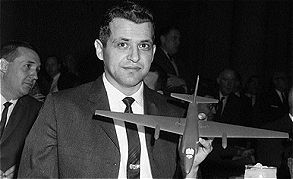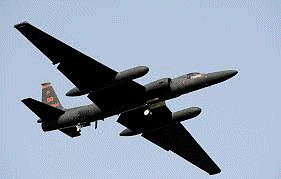FRANCIS
GARY POWERS
by Bill Harry
| In
1956 Gary Powers, a former lieutenant in the American Air force
was hired by the Lockheed Aircraft Corporation as a test pilot.
He was then stationed in Incirlik, Turkey, where it was claimed
he was involved in weather research projects, flying between Pakistan
and Norway. On 1st May 1960 his high-altitude reconnaissance plane, a Lockheed U2 aircraft, was shot down by long-range Soviet missiles near an army base in Sverdlovak. Powers managed to bail out and was captured and arrested. This led to a Cold War political power game known as ‘The U2 Incident.’ |
 |




